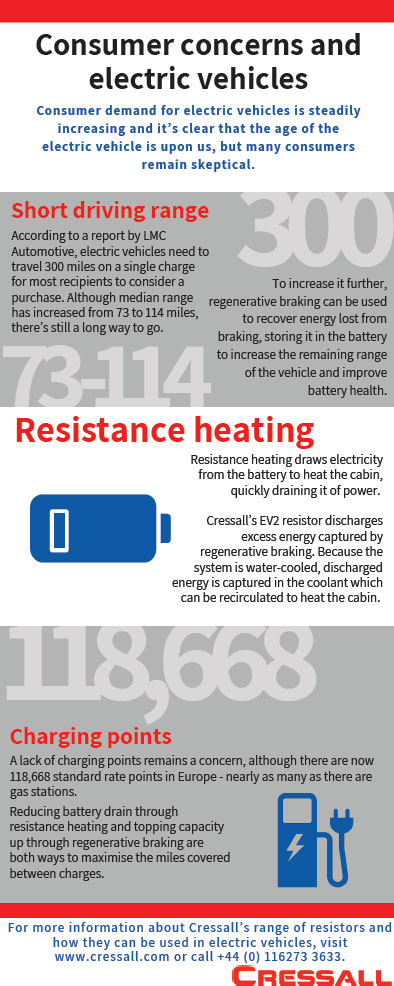Consumer reluctance and electric vehicle uptake
Power resistor manufacturer, Cressall has produced an infographic that explains the reasons why consumers are sceptical about electric vehicles, and how the industry should respond to this reluctance. By supporting design engineers to increase their understanding of consumer concerns, Cressall hopes the industry will be able to overcome many of the challenges it faces.
Electric vehicle manufacturers are faced with a range of challenges, including the requirement for more advanced battery technologies. In addition to technical demands, consumer uncertainty is also hindering sales.
The concerns cited by consumers include a short driving range, limited heating and air conditioning and a lack of charging points. Each of these can be improved or overcome by careful design engineering.
For example, driving range can be increased by using regenerative braking to recapture energy that would ordinarily be lost through friction braking.
“By having an acute awareness of the concerns that are making consumers reluctant to buy an electric vehicle, design engineers can ensure their vehicles are more marketable and saleable,” explained Simone Bruckner, Managing Director at Cressall.
“Increasing electric vehicle sales will not only be profitable for manufacturers but will also have beneficial effects on the environment. According to The Guardian, a hybrid vehicle that uses regenerative braking produces 42g less CO2 per km than the equivalent petrol vehicle.
“In addition, electric vehicles are much more efficient and with government incentives such as bursaries, they can be a more cost-effective option for many consumers.”
Cressall’s EV2 advanced modular water-cooled resistor is specifically designed for hybrid and all-electric vehicles. It’s an essential component in the regenerative braking process, discharging any excess energy in case of the battery being full, an electrical fault or an emergency situation.






